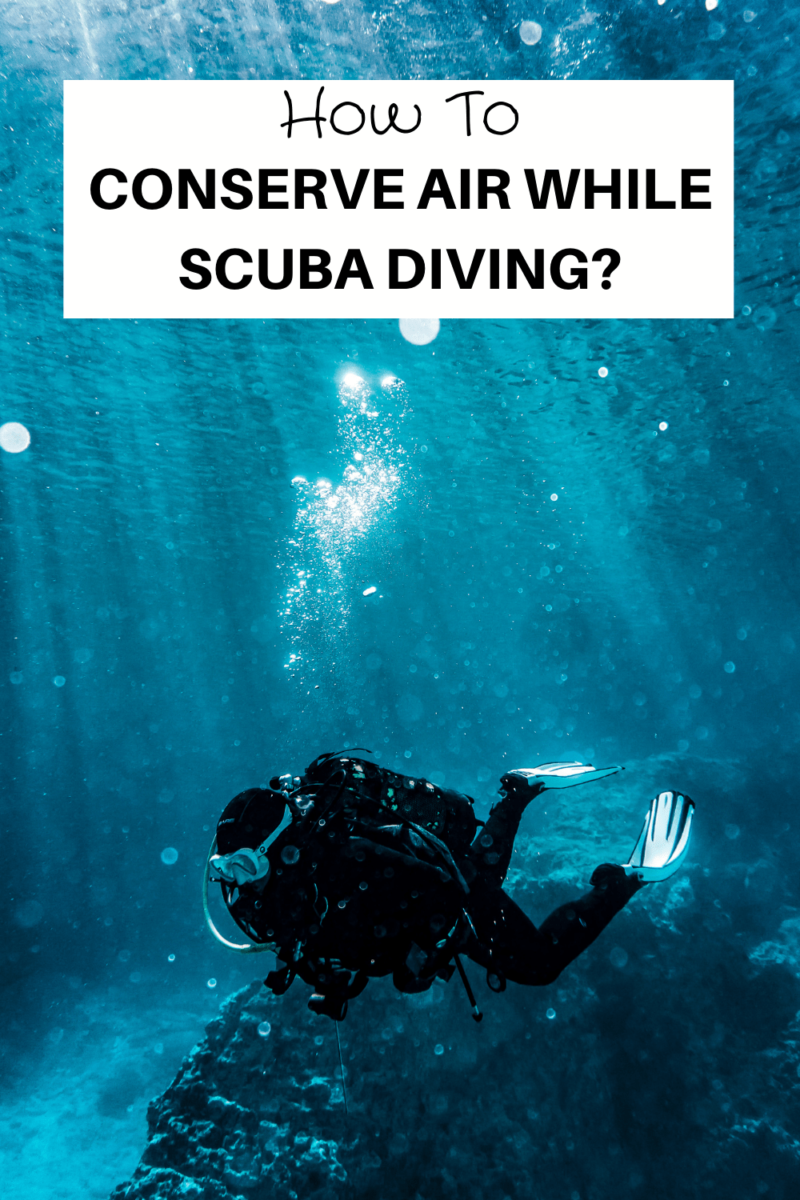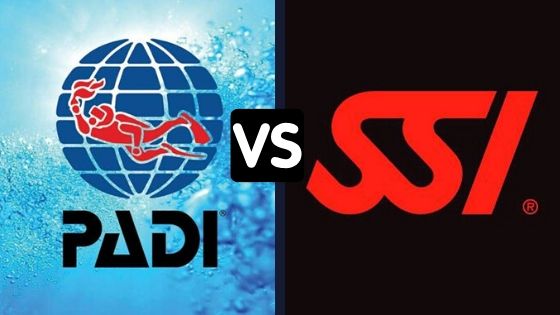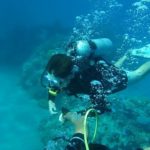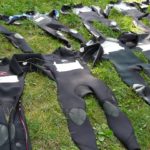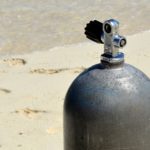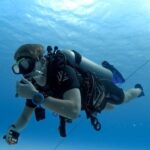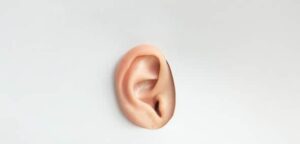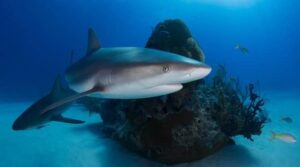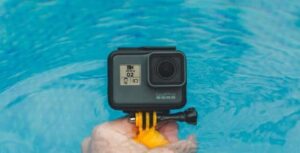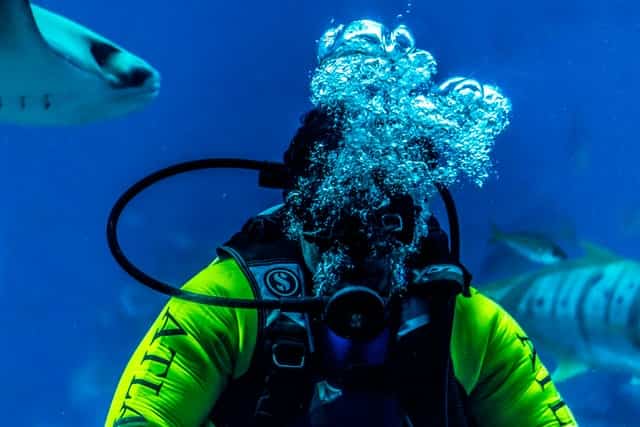
Managing your air supply when scuba diving is important in scuba diving. And is an important skill to get right but it does take practice to get it right which means a lot of dives. You don’t want to be the person who is low on air while your buddy still has plenty, so how to conserve air while scuba diving?
There are a number of ways to conserve air while diving. These include breathing slowly and importantly getting your buoyancy right. Along with swimming slowly and being at good physical fitness. One of the biggest ways to improve air usage while diving is practice.
In today’s post, we will go through in more detail how to conserve air while scuba diving, so let’s get started!
Read more on common questions asked by divers
How To Conserve Air While Scuba Diving?
As mentioned already managing your air supply while scuba diving is important. And this is an important skill to get right but it does take practice to get it right. This means a lot of dives to get comfortable underwater. You don’t want to be the person who is low on air while your buddy still has plenty.
There are a number of ways to converse your air while underwater. These are as follows.
- Do An Equipment Check.
- Breathe Slowly And Calmly.
- Buoyancy.
- Use Correct Amount Weights.
- Use Good Fins.
- Be In Good
Your Physical Fitness. - Practice Makes Perfect.
Do An Equipment Check
Doing the equipment check should be done before every dive. When checking the dive equipment you need to check for any leaks in the inflator hoses, scuba tanks condition, BCD, and regulators. And that all equipment is working as expected.
If the equipment is rented, scuba tanks need to be certified regularly by a qualified professional. You can ask to see a cert which should show that last time it was checked by a qualified professional.
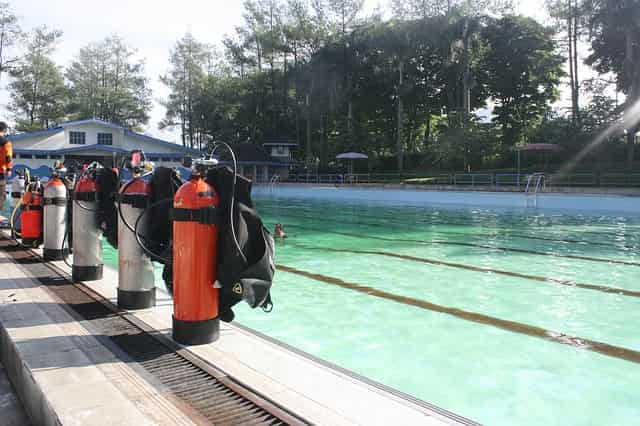
Breathe Slowly And Calmly
When scuba diving you need to learn to breathe slowly, deeply, and calm. And exhale slowly. Simply breathing slowly and deeply allows more fresh oxygen into the lungs and gives the body time to absorb more oxygen.
Buoyancy
Buoyancy is one of the most important skills to learn to become a good scuba diver. Learning and fine-tuning the skill of buoyancy will improve your diving efficiency and make your diving fun and effortless. Therefore using less air.
A lot of scuba divers are constantly adding air to their BCD therefore there is less air to breathe.
Use Correct Amount Of Weights
The amount of weight you use on the dive can affect your air consumption. So if you use too much weight it with increase your air consumption. It is important to get your weights correct.
Use Good Fins
The fin’s main job is that it provides propulsion underwater for scuba divers. So getting a pair of good quality fins can help you to maneuver efficiently and therefore use less energy when diving.
Simply using less energy means less air consumption.
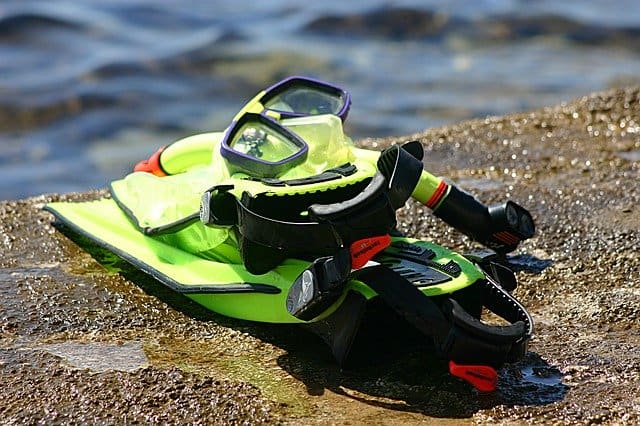
Be In Good Your Physical Fitness
All scuba divers should be at a reasonable go level of fitness. Firstly, scuba diving gear is heavy, and a wetsuit can compromise your movement.
Secondly, being good physically improves the scuba diver’s overall aerobic capacity so therefore can last longer during the dive.
Practice Makes Perfect
Overall the more you dive the better you get and the more comfortable you get underwater. It is common sense that the more experience you get diving the more relaxed and comfortable you will be underwater.
Along with improving your buoyancy which will overall improve your air consumption.
What Happens If You Run Out Of Air While Scuba Diving?
Quite simply if you run out of air underwater you are at risk of drowning. When your air level is at a low level or at a dangerously low level you need to make the best and safest possible way to the surface.
Can You Pee While Scuba Diving?
You can pee underwater while scuba diving but it doesn’t mean you should. Especially if you are renting out a wetsuit.
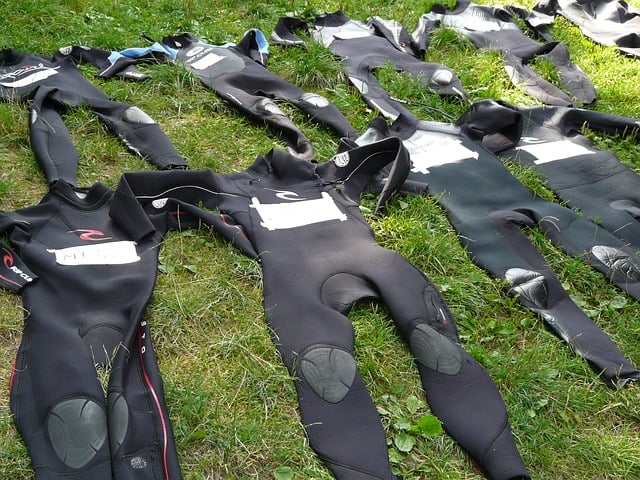
Can You Fly After Scuba Diving?
PADI (Professional Association of Diving Instructors) recommends regarding flying after diving is to wait for at least 12 hours. While the U.S Air Force says to wait 24 hours.
How Long Do Scuba Divers Have To Decompress?
If you have to decompress after diving, it can take up to 24 hours for your body to return to normal levels after a dive.
Wrapping Up
Finally, there are a number of ways to conserve air while diving. These include breathing slowly and getting your buoyancy right. Along with swimming slowly and being in good physical fitness. One of the biggest ways to improve air usage is practice, practice.
And that’s it for now! I’d love to know if this guide on how to conserve air while scuba diving, has helped you. Let me know if you have any questions and let me know if there is more to add.
Did you enjoy this post? Then don’t forget to pin it!
